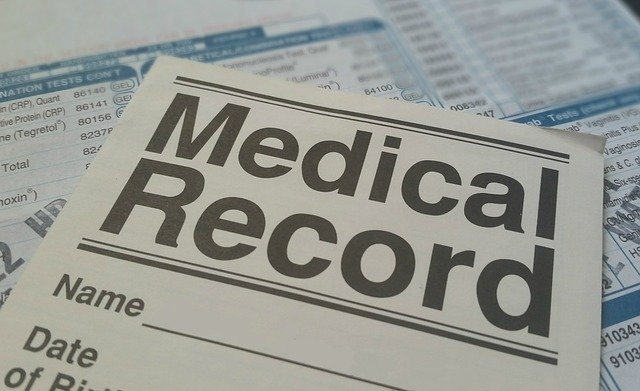
HIPAA is the Health Insurance Portability and Accountability Act enacted in 1996 by the US Congress. This is very significant legislation for companies, particularly in the healthcare industry. It guarantees that all PHIs are properly protected and limits only authorized people’s access to health data, thus avoiding healthcare fraud. It addresses how healthcare professionals and business partners handle the sensitive data of patients and safeguard their health information; it establishes the standard necessary to guarantee that PHI is kept, managed, and properly accessible at all times.
HIPAA is intended to safeguard people and to guarantee that all people have direct access to a copy of their particular health records. It is essentially a matter of civil rights. HIPAA establishes a methodology that protects who can access and view relevant health information while limiting who can share this information with. To comply, every PHI business would have to have physical, network, and process security safeguards.
HIPAA Compliance
The Health Insurance Portability and Accountability Act (HIPAA) lays out the norm for sensitive data security for patients. Companies dealing with Protected Health Information (PHI) have and must have the physical, network, and procedural security measures in place to guarantee compliance with HIPAA. Compliance with HIPAA should be met by covered companies and business partners (anyone with access to medical information and support in treatment, payment, or operations). Other organizations, such as contracting companies and any associated corporate partners, must also comply.
PHI = Protected Health Information
HHS = Department of Health and Human Services (Regulation of compliance)
OCR = Office for Civil Rights (Compliance enforcement, investigation of HIPAA violations)
Protected health information (PHI) is the combination of your identifiers, such as your name and address, and any health-related data gathered, such as your medical record, any interactions with your providers, or billing and insurance information from a health practitioner or institution.PHI can be anything that incorporates your Personally Identifiable Information (PII) as well as your health information.
HIPAA Compliance Checklist
The HIPAA Compliance Checklist includes:
- Performing self-audits
- Having a remediation plan in place
- Documentation
- Business associate management
- Developing and implementing policies, procedures, and employee training
Although all these are essential, Harlow advises that the data protection and security of PHI be addressed holistically by continuously reviewing and improving systems, policy and procedures, education, and execution. In the end, compliance with HIPAA rules may appear tiresome, but today’s threatening environment has to be safeguarded by appropriate safety hygiene. The consequences are too terrible to ignore.
Importance of HIPAA Compliance
HIPAA compliance is more essential than ever as healthcare practitioners and others interacting with PHI move on to computerized operations such as CPOE systems, electronic health records, and radiography, the pharmacy, and laboratory systems. Health plans also offer access to claims and care and self-service apps. While all these electronic techniques increase productivity and mobility, they dramatically raise the safety hazards of health data. With HIPAA data retention rules, even older data can be retrieved when the need arises. The security rule has also been established to safeguard the privacy of the health information of people and at the same time enable undertakings to use new technology to enhance patient care quality and efficiency. By design, the security rule is flexible.
Business Sector
If a company has something to do with medical records or medical information as a covered entity (CE) or a business partner (BA), compliance with HIPAA is essential for it.
Public
HIPAA compliance has been accomplished for the public at large. The Act seeks to minimize medical abuses and fraud and establishes standards for the exchange of information, computerized billing, and other procedures between companies. It aims to improve safety and confidentiality for all types of health information.
Healthcare
The Act helps not just the public, but also organizations. HIPAA helps to convert paper documents to more structured digital/electronic data for healthcare companies. It simplifies administration-related healthcare tasks, enhances efficiency in working procedures, and guarantees that the healthcare system is safe.
Organizations / Sub-Contractors
HIPAA health insurance guarantees the complete privacy of a patient and their data is secured by trained and certified HIPAA healthcare professionals. HIPAA provides people with the ability to obtain and modify records of their medical information. The protected information needs the permission of the patient before it is shared with others. The Act allows patients to choose their representatives.
HIPAA Violations
A HIPAA breach happens when the confidentiality of PHI or ePHI is jeopardized by an organization’s compliance program.
It is essential to remember that data infringements aren’t like HIPAA infringements. Data violation may also be a violation of the HIPAA but only if the infringement is caused by abortion in the HIPAA compliance program or by a particular violation of the HIPAA rules of an entity.
The most common HIPAA violations are:
- Smartphones, computers, and USB gadgets stolen
- hacking or attacking (cybercrime), including malware and ransomware assaults
- Business partner infringement
- Infringement of the electronic health record (EHR)
- Break-in Office
- PHI to the incorrect patient/contact
- Talking about PHI outside the workplace
- Postings of social media
Data Security
With the increased usage and exchange of electronic patient data, the necessity for data security has increased. High-quality treatment needs health organizations while dealing with HIPAA rules and safeguarding PHI, to fulfill this increased need for data. A data protection plan is in place to guarantee the safety and availability of PHI by health institutions to retain the confidence of practitioners and patients
Maintain better visibility and control of sensitive data across the business in accordance with HIPAA and HITECH requirements for access, audits, integrity controls, data transfer, and device security.
In all aspects, including various data sources, email, documents, and scans, the finest data security systems identify and safeguard patient data while enabling healthcare professionals to exchange data in a safe way to guarantee the greatest possible level of patient care.
HIPAA ensures that PHIs are well-protected throughout the process flow and that only the right personnel have access to it. All of this ensures the safety of healthcare products from production down to the supply chain.










